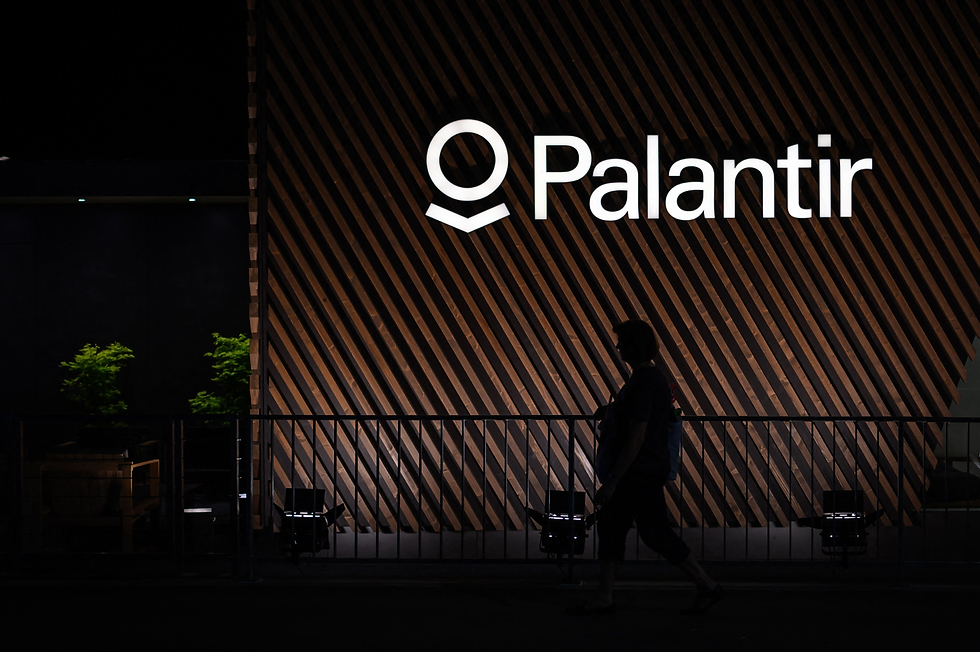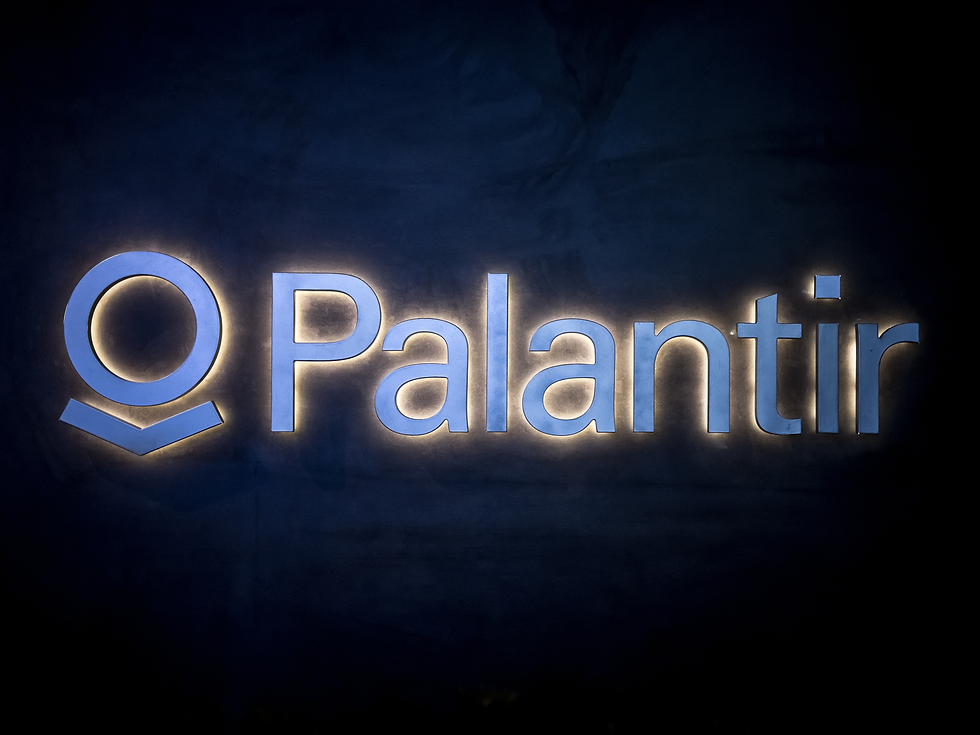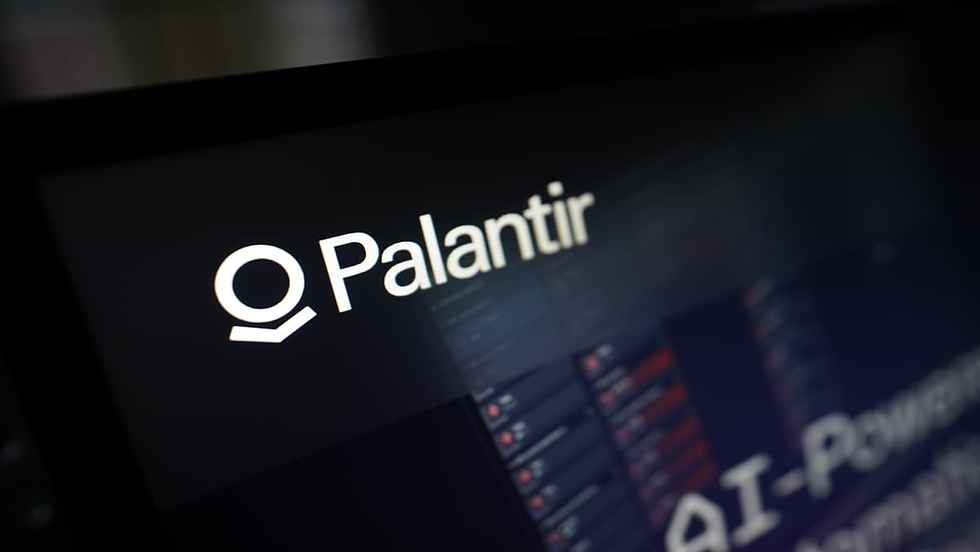Palantir Technologies: The Controversial AI Giant Shaping Modern Warfare and Business Intelligence
- Ethan Carter

- Sep 19, 2025
- 8 min read

Palantir Technologies stands as one of Silicon Valley's most polarizing success stories, transforming from a secretive post-9/11 startup into a $430 billion AI powerhouse that openly declares its products are "used on occasion to kill people". Unlike typical consumer-focused tech companies, this Denver-based firm has carved out an unprecedented niche at the intersection of artificial intelligence, national security, and big data analytics, challenging both traditional defense contractors and Silicon Valley's apolitical culture.
The company's meteoric rise has been nothing short of extraordinary, with stock surging over 1,750% since its 2020 IPO and achieving the rare milestone of exceeding $1 billion in quarterly revenue for the first time in 2025. This remarkable performance has positioned Palantir as the top-performing stock in the S&P 500 year-to-date, cementing its status as a force reshaping both government technology and commercial enterprise software.
Understanding Palantir's Core Business Model

What Palantir Actually Does
At its fundamental level, Palantir Technologies operates as a sophisticated data analytics software company specializing in integrating massive, disparate datasets for mission-critical decision-making. Rather than manufacturing physical hardware like traditional defense contractors, Palantir creates powerful software platforms that enable complex organizations to synthesize information from hundreds of sources and extract actionable intelligence through AI-powered analysis.
The company's core competency lies in solving what experts call the "data integration problem" - taking siloed information from databases, sensors, satellite imagery, intelligence reports, and other sources, then creating a unified analytical environment where previously invisible patterns and connections emerge. This capability has made Palantir indispensable to organizations dealing with overwhelming information flows, from military commanders coordinating battlefield operations to Fortune 500 executives optimizing global supply chains.
Four Flagship Platforms Driving Growth
Palantir's technology portfolio centers around four primary platforms, each serving distinct market segments and use cases :
Palantir Gotham powers defense, intelligence, and law enforcement operations across the United States and allied nations, providing real-time intelligence capabilities that dramatically accelerate decision-making timelines. The platform has been deployed in scenarios ranging from counter-terrorism operations in Iraq and Afghanistan to supporting Ukraine's targeting systems in its ongoing conflict with Russia.
Palantir Foundry serves commercial enterprises across more than 40 industries, creating what the company calls "digital twins" of entire organizations by connecting data assets to real-world operations. Major clients include energy giant BP, investment banks, and manufacturing companies seeking to optimize complex processes through AI-driven insights.
Palantir Apollo functions as a continuous software delivery system enabling secure, remote deployment and updates across cloud, on-premises, and edge environments. This platform ensures Palantir's other tools can operate in the most sensitive and restrictive computing environments, from classified military networks to regulated financial systems.
Artificial Intelligence Platform (AIP), launched in 2023, represents Palantir's newest growth driver, helping organizations integrate generative AI and large language models into their operations while maintaining security and auditability requirements. This platform has been crucial in driving the company's recent commercial sector expansion.
Historical Evolution and Market Position
From Post-9/11 Startup to AI Powerhouse
Palantir's origin story begins in 2003, when PayPal co-founder Peter Thiel partnered with current CEO Alex Karp to address critical intelligence failures exposed by the September 11 attacks. The founders recognized that government agencies were drowning in data but lacked tools to connect disparate information sources and identify emerging threats.
Early funding from In-Q-Tel, the CIA's venture capital arm, provided crucial credibility within the intelligence community and helped establish Palantir's reputation as a trusted technology partner for sensitive national security applications. By the mid-2000s, the company's software was being deployed by troops in Iraq and Afghanistan to identify improvised explosive devices and track insurgent networks.
The company's commercial expansion began in 2009 when JPMorgan Chase adopted Palantir's fraud detection capabilities, marking its first major enterprise client. This milestone demonstrated that Palantir's data integration expertise could create value far beyond government applications, setting the stage for its current dual-market strategy.
Current Market Dominance and Financial Performance
Palantir's 2025 financial performance has exceeded even optimistic analyst projections, with Q2 2025 revenue reaching $1.05 billion - a 48% year-over-year increase. The company's U.S. government revenue grew 53% to $426 million, while commercial revenue surged 93% in the most recent quarter, demonstrating balanced growth across both core market segments.
Perhaps most significantly, Palantir achieved a crucial milestone of exceeding a $1 billion annual revenue run rate in its U.S. commercial business alone, with year-over-year growth of 71%. This achievement validates the company's strategy of applying its government-tested capabilities to enterprise challenges across healthcare, finance, manufacturing, and other industries.
Real-World Applications and Impact

Military and Defense Operations
Palantir's most significant and controversial applications occur in military contexts, where the company's platforms directly support lethal operations. In Ukraine, Palantir CEO Alex Karp has claimed the company is "responsible for most of the targeting" in the country's defense against Russian invasion.
The company's software enables what military analysts call "sensor-to-shooter" acceleration, dramatically reducing the time between target identification and engagement. Ukrainian forces have reportedly used Palantir-powered systems to strike over 400 Russian targets with precision-guided munitions, fundamentally changing the pace of modern warfare.
Recent major defense contracts include a £750 million, five-year deal with the UK Ministry of Defence, replacing a previous £75 million arrangement. The company has also secured significant contracts with the U.S. Army, including the $178 million TITAN program for AI-powered battlefield intelligence systems.
Commercial Enterprise Applications
Beyond government applications, Palantir has achieved remarkable success in commercial markets by applying its data integration expertise to complex business challenges. Credit Suisse has used Palantir to identify illegal trading patterns, while Formula One team Scuderia Ferrari leverages the platform for real-time maintenance decisions during races.
Perhaps most impressively, aerospace manufacturer Airbus used Palantir Foundry to quadruple production of its A350 aircraft by integrating data from 25 different silos and synthesizing over 400 distinct datasets. This integration enabled rapid identification and correction of production issues, demonstrating the platform's ability to drive measurable operational improvements.
The healthcare sector represents a particularly important growth area, with Palantir's technology being deployed for everything from COVID-19 vaccine distribution to supporting the UK's National Health Service digital transformation initiatives.
Controversial Government Applications
Palantir's work extends into highly sensitive domestic applications that have generated significant ethical concerns and public scrutiny. The company's FALCON system became central to U.S. Immigration and Customs Enforcement (ICE) operations, enabling the agency to plan workplace raids and track undocumented immigrants with unprecedented efficiency.
During the Trump administration, Palantir's technology was directly linked to controversial family separation policies, sparking internal employee protests and high-profile resignations. Amnesty International has documented how Palantir's systems facilitate deportation operations that may constitute human rights violations.
The company has also been involved in predictive policing initiatives with departments including the Los Angeles Police Department and New Orleans Police Department, raising concerns about algorithmic bias and civil liberties violations.
Leadership and Corporate Culture
Alex Karp's Unconventional Leadership
CEO Alex Karp has emerged as one of Silicon Valley's most distinctive and controversial leaders, combining a PhD in neoclassical social theory with aggressive advocacy for Western technological superiority. Named to Time magazine's 2025 list of most influential people, Karp has built a personal fortune exceeding $12 billion while championing a vision that directly challenges Silicon Valley's traditionally apolitical stance.
Unlike typical tech CEOs who focus on consumer applications, Karp has positioned Palantir as a tool for defending democratic values against authoritarian threats. His recent comments about "radically increasing growth while decreasing margins" and improving worker happiness reflect his belief that AI should augment rather than replace human labor.
Karp has also launched the "AI Optimism Project," investing significant resources to counter fears about AI job displacement and promote positive narratives about artificial intelligence's societal benefits. This initiative reflects his broader philosophy that technology companies must engage with social and political challenges rather than remaining neutral.
Cultural Shift from Silicon Valley
In 2020, Palantir made the symbolic decision to relocate its headquarters from Palo Alto to Denver, citing what Karp described as Silicon Valley's "increasing intolerance and monoculture". This move represented more than geographic relocation - it signaled the company's fundamental rejection of the tech industry's prevailing cultural values.
The company has actively cultivated a culture that celebrates its military partnerships and national security mission, creating what some observers describe as a "patriotic tech" movement within the broader industry. This positioning has attracted both fervent supporters and vocal critics, contributing to Palantir's status as one of the most polarizing companies in the technology sector.
Future Opportunities and Strategic Challenges

Growth Drivers and Market Expansion
Palantir's future growth prospects appear particularly strong in several key areas. The global artificial intelligence market, valued at $279.2 billion in 2024, is projected to expand at a rapid pace, creating substantial opportunities for AI-powered platforms like AIP.
The company's recent £1.5 billion investment commitment to the UK, combined with expanded defense partnerships, suggests significant international growth potential. Additionally, Palantir's success in commercial markets - demonstrated by 93% growth in U.S. commercial revenue - indicates the company is successfully diversifying beyond its government-centric origins.
Competitive and Ethical Challenges
Despite impressive financial performance, Palantir faces significant headwinds that could impact future growth. Privacy advocates and civil liberties organizations continue to challenge the company's role in surveillance and immigration enforcement, potentially limiting contract opportunities and creating reputational risks.
The company's involvement in Israeli military operations during the Gaza conflict has intensified scrutiny from human rights groups and led to employee resignations. These ethical controversies could complicate international expansion and talent recruitment efforts.
From a competitive standpoint, some analysts question whether Palantir's valuation remains sustainable given potential market volatility and increasing competition from both established technology companies and emerging AI startups.
Investment Implications and Market Outlook
Financial Performance Metrics
Palantir's recent financial results demonstrate remarkable momentum across multiple metrics. The company achieved 130% year-to-date gains in 2025, making it the best-performing stock in the S&P 500 by a significant margin. This performance has been driven by consistent revenue growth, expanding profit margins, and successful market diversification strategies.
The company's ability to maintain high growth rates while achieving profitability distinguishes it from many other high-growth technology companies that sacrifice margins for expansion. Government contracts provide stable, long-term revenue streams, while commercial growth offers higher margins and greater scalability potential.
Long-Term Strategic Position
Palantir's unique positioning at the intersection of AI, national security, and enterprise software creates both opportunities and risks for investors. The company benefits from high switching costs, long-term government contracts, and growing demand for AI-powered analytics across multiple sectors.
However, the concentration of wealth among executives - including Karp's $12 billion stake - and the company's dependence on government relationships create potential vulnerabilities. Political changes, budget constraints, or shifting public attitudes toward surveillance technology could significantly impact future performance.
Frequently Asked Questions

What exactly does Palantir do?
Palantir develops advanced data analytics software that integrates information from multiple sources to provide AI-powered insights for decision-making. The company serves both government clients (military, intelligence, law enforcement) and commercial enterprises across industries like healthcare, finance, and manufacturing. Its platforms help organizations make sense of vast, disconnected datasets to identify patterns, predict outcomes, and optimize operations.
Why is Palantir considered controversial?
Palantir faces criticism for its role in military targeting systems, immigration enforcement operations, and predictive policing programs that may perpetuate racial bias. The company's technology has been linked to civilian casualties in conflict zones, family separations by ICE, and surveillance activities that civil liberties groups argue threaten privacy rights. Critics argue that while Palantir claims its tools are "neutral," their real-world applications often enable harmful government policies.
How has Palantir's stock performed recently?
Palantir has been the top-performing stock in the S&P 500 in 2025, with gains of 130% year-to-date and over 1,750% since its 2020 IPO. The company reached a market valuation exceeding $430 billion after reporting its first quarter with revenue over $1 billion. However, some analysts warn that the stock may be overvalued and could face volatility as market conditions change.
What are Palantir's main products?
Palantir offers four primary platforms: Gotham (for defense and intelligence), Foundry (for commercial enterprises), Apollo (for software deployment), and AIP (for AI integration). Gotham handles classified military operations and law enforcement applications, while Foundry serves businesses in healthcare, manufacturing, and finance. AIP, launched in 2023, helps organizations integrate generative AI capabilities into their existing operations.
Is Palantir a good investment for the future?
Investment suitability depends on individual risk tolerance and ethical considerations. Palantir shows strong financial performance with diversified revenue growth, long-term government contracts, and expanding commercial markets. However, the company faces regulatory risks, ethical controversies, and high valuation concerns. Potential investors should carefully consider both the growth opportunities in AI and defense spending, as well as the risks associated with the company's controversial applications and dependence on government relationships.


